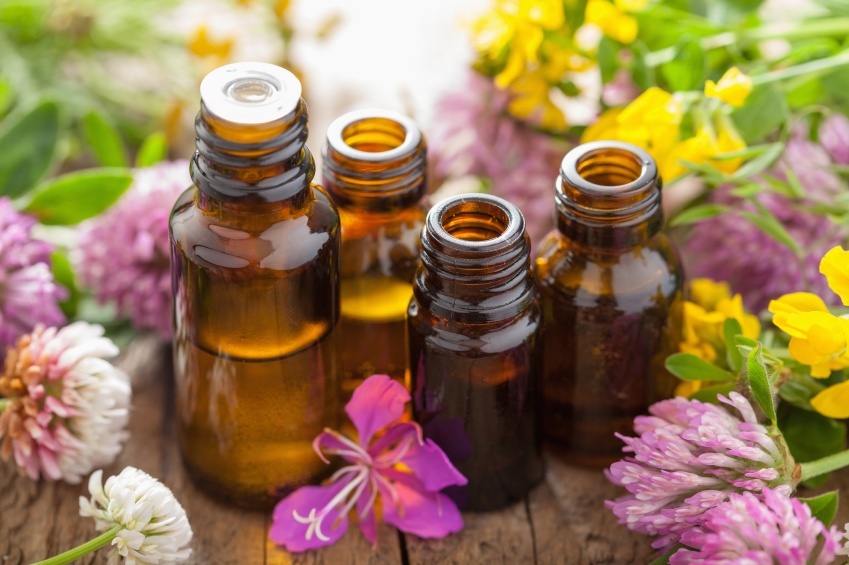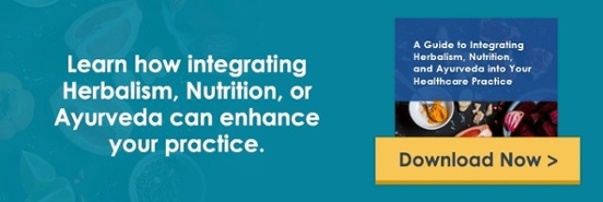
Do you ever find yourself in the kitchen without knowing why you came in there? No, not you. Whatever it was, it must have been important, for here you are. Maybe if you go back out into the living room, you’ll magically remember why you traipsed to the kitchen. Or, just maybe, some herbal medicine can jog that aging memory.
Why We Start to Lose Short-Term Memory with Age
As our population ages, losing one's mental faculties can take first place on the list of concerns. Alzheimer's disease and other forms of senile dementia affect some 25 percent of all people over 80. However, research reveals herbal approaches in treating and preventing mental decline.
Some types of mental decline develop when we are exposed to toxins and oxidizing chemicals in our environment. All of these appear to contribute to brain inflammation, scarring and mental decay. Brain inflammation may result from toxins, allergies, stress or low tissue nutrients.
The inflammation process creates free radicals that cause damage, which may contribute to senile dementia. These free radicals can be particularly damaging when brain tissues are deficient in antioxidants and other nutrients that ease the effects of chronic inflammation. Antioxidant levels in the brain have been shown to decline with age, and, the lower the level, the greater the damage to nerve cells. Antioxidants should top your list of brain nutrients. Fortunately, many time-honored herbs are potent antioxidants.
Memory Rejuvenation with Natural Remedies
Memory remedies include a large array of herbs and foods recommended to rebuild body tissues and restore lubricating juices. Five of these mind-nourishing herbs stand out as pillars of an Ayurvedic lifestyle.
Ashwagandha, or Winter Cherry
Ashwagandha, sometimes named “winter cherry”, is a top mental rejuvenator. Herbalists use the herb for general debility and exhaustion, memory loss and nerve diseases. Modern clinicians are most likely to employ it for chronic fatigue and anxiety, as well as insomnia. Ayurveda considers it a “grounding” herb, one that nourishes and regulates metabolic processes and stabilizes mood.
This tonic herb, a relative of tomatoes and potatoes, is not stimulating, but rather relaxing. That allows us to take much higher doses, with no overstimulation, so this root is a superb remedy for nervous exhaustion.
Ashwagandha increases memory and test performance. Study after study continues to confirm the stress tolerance, performance, memory and endurance-enhancing benefits of this herb. One study indicated that the herb reduced brain damage caused by stress by 80%. In a 2014 prospective, double-blind, multi-dose, placebo-controlled crossover study, 20 healthy male participants were randomized to receive ashwagandha or a matching placebo for 14 days. The subjects significantly improved in a wide range of memory and cognitive tests.
A typical dose of ashwagandha is about a gram per day, taken over long periods, up to many years, as a rejuvenator, but, since ashwagandha is very safe, larger quantities are often used short term. In India, Withania is given with pungent, heating herbs (ginger, pepper, etc.) to ensure that it gets sufficiently digested.
Gotu Kola
Gotu kola is an herb with a long history of brain-building. Gotu kola, also called Mandukaparni, is a mainstay of herbal medicine. Widely considered a superior herb for the nervous system, gotu kola has a host of benefits, including anti-aging and cognitive properties. It has a bitter taste and is cooling to the body.
Gotu kola strengthens memory, concentration and intelligence, promotes longevity and is used to treat age-related senility. Gotu kola is a jungle creeper that grows in hot moist climates. After all, it’s the food of the elephants, and we all know about their memories! Fresh, it’s a delicious salad vegetable. The juice of the fresh leaves is available at some juice bars.
More recently, a study out of Korea shows that constituents in gotu kola show potential for treating Alzheimer’s disease, a very promising direction.
Since gotu kola is basically a mild salad vegetable, the dose can be very high. Many people use a modest dose of 1 gram per day in capsules for daily rejuvenation. Try a daily cup of gotu kola tea with honey to boost memory.
Brahmi, or Water Hyssop
Brahmi, or water hyssop (Bacopa monniera), is a steadfast mainstay of traditional medicine. An indication of the respect for this herb is the name: “Brahmi” means “godlike." It’s used in Asia for nerve diseases, mental exhaustion and to improve memory—it’s a powerful brain food. Meditators use it to increase comprehension, concentration and recollection. Because it increases the ability to solve problems effectively, it is often found in herbal formulas to prevent stress. With nearly 300 studies in the scientific literature, it has a solid base of scientific support for its many functions. This powerhouse also does double duty as a nerve tissue builder, diuretic, sedative and tonic and anti-stress remedy.
Australian researchers recently gave Bacopa to 98 healthy adults, aged 55+ years, in a double-blind randomized, placebo-controlled study in which various memory functions were tested and measured. Numerous memory tests before and after taking the brahmi showed that the herb significantly improved the retention of new information Follow-up tests showed that the learning rate remained the same, so it looks like brahmi reduces the rate of forgetting of newly acquired information.
Brahmi is safe and effective for children. Indian schoolchildren take it at home and the tots improve in maze learning, immediate memory, perception and reaction/performance.
The typical dose is two grams of the whole herb, in capsules or tea, twice a day with warm water.
Natural healing places special attention on the health of the mind, and many systems teach that, ultimately, all physical diseases start in the mind, so a healthy mind is at the forefront of natural healing practices. These three herbs form the core of a superb mental medicine chest. They are waiting to help us stay calm, centered, intelligent and exalted, so now might just be the time to give this collection of remedies a try.



